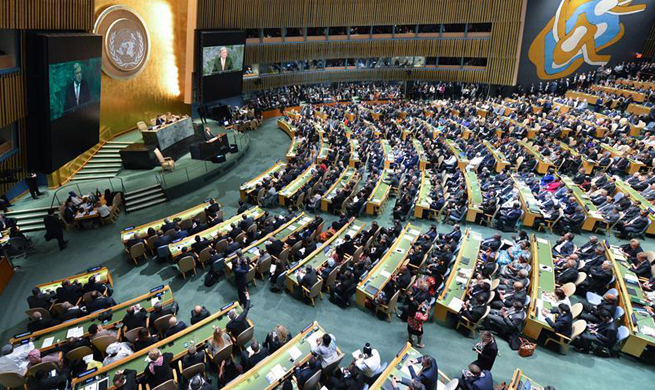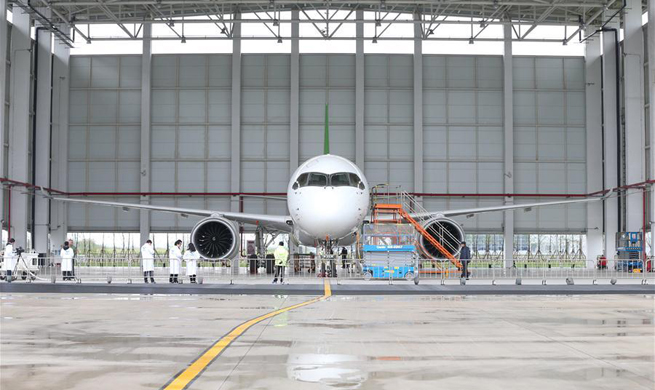HARARE, Sept. 20 (Xinhua) -- Prices of basic commodities are rising steadily in the shops as foreign currency shortages persist and suppliers are forced to get the elusive U.S. dollar from the black market at high premiums.
A middle level manager with one of the country's leading retail chains told Xinhua Wednesday that suppliers were increasing their prices citing higher costs in obtaining especially foreign goods.
"The suppliers are paying premiums to keep the supply chain open and they have no choice but to pass on the cost to us. We, in turn, try to maintain a 10 percent profit margin on the supplied goods, hence we also do mark ups on their prices," he said.
Economist Clemence Machadu said the U.S. dollar supply continued to be erratic through various leakages such as rising net imports, smuggling and as a result of people holding it for speculative purposes.
Machadu said the shortage of foreign currency had led to the proliferation of a thriving black market where the U.S. dollar was being rationed at high premiums.
"Some desperate importers of finished goods and raw materials have been left with no option but to get the greenback on the parallel market. It's do or die for local companies, otherwise they go bust if they don't get adequate forex to manage their operations," he added.
Confederation of Zimbabwe Retailers marketing and stakeholder relations director Alois Burutsa told The Herald Business that his organization believed that the prices were going up because some retailers were acquiring foreign currency from the black market.
The organization had since requested for foreign currency from the Reserve Bank of Zimbabwe (RBZ), he said.
"The RBZ has asked us to compile our forex requirements and we are still in that process although we have submitted some requests for forex," he said.
Shopper Brian Chitiyo said he had watched the prices going up and was adjusting his budget and re-prioritizing goods to purchase for the home.
"I am doing away with certain luxuries such as breakfast cereals. My family is till comfortable having maize porridge and peanut butter," he said.
Machadu said many people now preferred saving their U.S. dollars cash at home to depositing it with their banks.
"Keeping it in the bank while the premiums of getting it out are rising means that they will lose out. So the participation of members of the public in purchasing U.S. dollars and holding them as a reliable store of value is also contributing to the high demand for the greenback that is also causing more shortages and rising premiums," Machadu said.
He said a sustainable solution lay in managing excessive government expenditure and rising imports and increasing surveillance on the borders to avert smuggling of goods.
"The country is still importing things that we have in abundance; for instance maize worth 101 million dollars was imported between January and July, yet there is plenty of maize locally. So there should be enhanced scrutiny on what is being imported in order to manage greenback leakages," he suggested.
Looking at the year on year trade deficit for the past few months, he said that for the month of June it rose 4.9 percent to 230.2 million dollars, and in July, it rose 18.23 percent to 217.9 million dollars - mainly on account of rising imports.
"There is also need to deal with externalization of the greenback. Zimbabwe is being used by some people as a field to harvest U.S. dollars that are then smuggled to other countries where there are stable economic fundamentals for doing business," Machadu said.
A number of people have been arrested over the years for allegedly externalizing foreign currency.
The Zimbabwe Revenue Authority has also effected a tracking system to monitor vehicles purporting to be in transit to other countries, yet they dump goods in the country without paying duty.
Machadu said while short term measures like increasing surveillance on cash smuggling could be implemented, a sustainable solution lay in making sure that the country had friendly policies that attracted investment, as well as more foreign loans and other lines of credit.

















